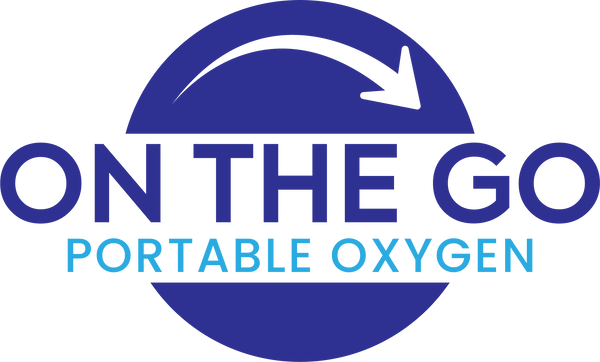Can a Portable Oxygen Concentrator Be Used at Night?
Share
Portable oxygen concentrators (POCs) have become essential for individuals requiring supplemental oxygen due to chronic respiratory conditions such as COPD, pulmonary fibrosis, or other lung disorders. A common question among users is whether these devices can be safely and effectively used at night. The answer is yes—most portable oxygen concentrators are designed for both daytime and nighttime use, but there are specific considerations to ensure optimal performance and safety while sleeping.
Why Are Your Oxygen Levels Low At Night?
One of the main reasons for low oxygen levels at night is because we breathe less when we sleep which results in lower blood oxygen levels. Another reason for low oxygen levels at night is due to sleeping disorders or respiratory health issues. Patients suffering from asthma, COPD, or sleep apnea often experience lower blood oxygen levels during sleep.
COPD and Asthma: These conditions cause breathing difficulties throughout the day, but they can worsen at night, leading to oxygen desaturation.
Obstructive Sleep Apnea (OSA): OSA can severely restrict normal airflow, significantly reducing blood oxygen levels during sleep.
Signs Your Oxygen Might Be Low When Sleeping At Night
- Shortness of breath or rapid breathing
- Waking up gasping for air
- Chest pain
- High blood pressure
- Loud snoring
- Confusion
- Disoriented
Benefits of Using a POC at Night
Maintained Oxygen Levels: During sleep, oxygen saturation levels can drop, especially for individuals with existing respiratory conditions. A POC ensures a steady supply of oxygen, helping to prevent hypoxemia.
Improved Sleep Quality: Adequate oxygen levels can reduce interruptions caused by shortness of breath or other symptoms, leading to better rest.
Support for Sleep Apnea: Some POCs can be used in conjunction with CPAP or BiPAP machines for individuals with both sleep apnea and chronic respiratory conditions.
Features to Consider for Nighttime Use
When selecting a portable oxygen concentrator for nighttime use, keep these key features in mind:
Continuous Flow vs. Pulse Dose:
Many POCs offer a pulse dose setting, delivering oxygen only when you inhale. While this is efficient during the day, it may not be suitable for all users at night, as breathing patterns change during sleep.
A continuous flow setting provides a constant supply of oxygen
Battery Life and Power Options:
Nighttime use requires extended battery life or access to a power outlet. Many POCs can be plugged into a wall outlet to ensure uninterrupted operation overnight.
Some models also support external battery packs for added convenience.
Noise Levels:
Look for a device with low noise output to avoid disturbances while sleeping. Most modern POCs are designed to operate quietly.
Safety Tips for Nighttime Use
Proper Placement: Position the concentrator on a stable surface near your bed, ensuring proper ventilation around the device.
Check Alarms: Ensure the POC’s alarms for low oxygen output, battery levels, or system errors are functional and audible.
Backup Plan: Have a backup oxygen source available, such as a portable tank, in case of power outages or device malfunctions.
Consult Your Doctor: Always discuss your oxygen therapy needs with a healthcare provider to determine the appropriate settings and usage.
When a POC May Not Be Suitable at Night
Some individuals may require higher oxygen flow rates than a portable concentrator can provide or may not tolerate pulse dose settings during sleep. In such cases, a stationary oxygen concentrator might be recommended for nighttime use. Your doctor can help evaluate your specific needs and suggest the best equipment.
Benefits of Oxygen Therapy at Night
Once you begin sleeping with an oxygen concentrator at night, you may see improvements in your overall well-being. The oxygen concentrator regulates oxygen levels and keeps them from falling to disruptive levels, thus enabling a deeper sleep.
With any existing health conditions, regular use of an oxygen concentrator at night can help reduce the risk of arrhythmias, pulmonary hypertension, and even premature death.
Where Can I Buy a Portable Oxygen Concentrator?
If you need help selecting an oxygen concentrator, our oxygen specialists can answer any questions you may have. Give us a call at 855-695-6036.
